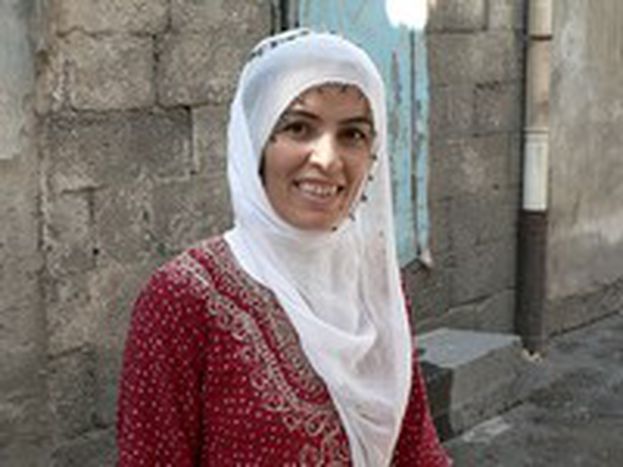
Turkish women: cover your hair, not your mouth
Published on
Fatma, Nihal and Zeynep - three self confident, educated young women from Istanbul raise concerns about Turkey's headscarf ban in parliament and universities, as an annual EU progress report is set to slam Turkey upon its release on 7 November
More women in parliament than ever before, and a former female head of government - something the US, for all its success in women’s liberation, has not yet had. Turkey even had a female constitutional justice court long before the States. But the 2004 gender-related development index (GDI) placed Turkey at 71 out of 177 countries, whilst it also came 92nd of 277 in the same year's Human Development Report (independently done by UNDP). These indices measure the inequalities in political and economic participation, knowledge and standard of living.
Blessed with self confidence
Nihal, 39, describes herself as a progressive Muslim. 'We women with headscarves know what we want,' she declares. 'The fact is that most women in Turkey wear a headscarf (between 60 - 70% of the female population). But in the new Turkish parliament there are no women with headscarves. It's undemocratic - I don’t feel I am politically represented.' Nihal has clear expectations for the political future of Turkey. 'We need an up-to-date Kemalism. That means Atatürk’s principles in combination with human rights and liberal democracy.'
Melis Kobal, an international relations student at stanbul University, is more optimistic. 'As a woman, I feel more politically represented in parliament. The latest election results from July 2007 show that now there are 48 women, doubling the number previous. It's hopefully the starting point for more women’s rights projects.' She believes that men and women are just very different from one other. 'Women are more emotional and pay more attention to details. Men make decisions more quickly and are less sensitive. More and more women are working, which empowers them. This gives them a voice and enables them to express themselves in society.'
Headscarves at university
Zeynep, 24, is one of these voices, and believes that it’s the women 'that manage everything here.' Headscarved women are not allowed in universities either, implying they are only allowed to take part in education and politics if they give up a part of their religion. Zeynep often feels discriminated against for wearing a symbol commonly associated with uneducated girls and women oppressed by men.
'I wear my headscarf because I believe in God’s commands.' But as soon as they give a higher value to their beliefs, women are excluded from many opportunities in society. 'It’s terrible,' Zeynep goes on. 'I never took off my headscarf throughout my studies. Many professors supported my decision, others gave me lower grades.' The Bosporus University graduate has great expectations for the future. 'I want people to follow my ideas because I have something to say.' She plans to travel the world and write books 'on life.'
'The world is dominated by patriarchic societies and boys and girls are not treated equally,' continues Fatma Dili, 24, a fellow Bosporus University graduate, in another thread. 'When the son in a family has a girlfriend, he is encouraged and praised. But if the daughter in a family goes out with a boy, I am sure she would neglect to inform her father or brother because they would not like it. This is not fair, but the only ones that can change this are the women themselves. Women should be aware of their power to teach their children that men and women should not be categorised by stereotypes. Rather, they should train their offspring to judge not according to gender but according to the individual. To be very clear,' she adds, 'these problems are a matter of old traditions, and not of religion. Men and women are equal not only in front of the UN Charter of Human Rights, but also in front of God.'



